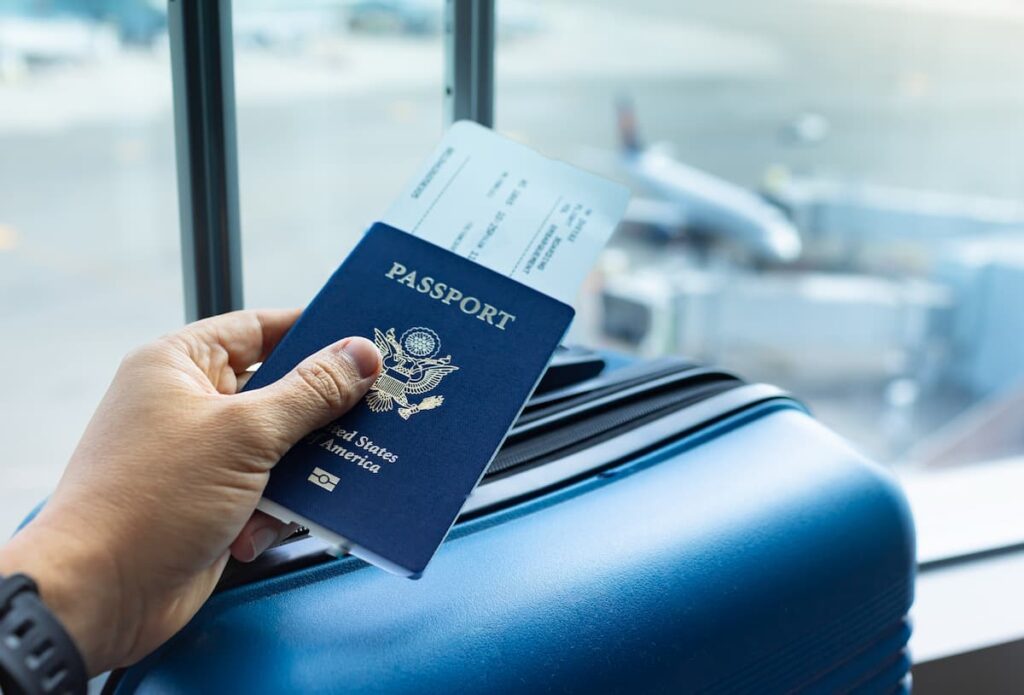A combination of political tension, border control concerns, and flight safety issues is pushing many Americans to reconsider or cancel international travel plans this summer.
Detentions, Delays, and Political Fears Shape Decisions
For Mary S., a marketing professional from Arizona, regular border crossings into Mexico and an upcoming trip to Canada were once routine. But after a wave of new policies enacted by President Donald Trump, including stricter border enforcement and heightened political scrutiny, her travel plans are on hold. “There’s no way I’m going anywhere near an airport or border crossing,” she said, citing fears of retaliation for her political opinions posted online.
Her concerns reflect a growing trend. Prominent figures like Twitch streamer Hasan Piker, who has publicly criticized Trump, were reportedly detained and questioned by federal agents upon returning to the US. The Department of Homeland Security called the incident a routine process, but it has left many Americans uneasy about what to expect when crossing borders.
Tamara Lidbom, a travel advisor with Anytime Travel Agency, noted that some lawful permanent residents are backing out of international trips entirely. “They’ve decided it’s safer to vacation in the United States and avoid the potential risks associated with leaving the country and attempting to re-enter,” she said.
Flight Safety Fears and Economic Uncertainty Add to the Pressure
Compounding the anxiety are recent aviation issues, particularly at Newark Airport, where multiple power outages and staffing shortages left control towers short-staffed and communications down for stretches of time. While national data from the National Transportation Safety Board shows aviation fatalities are below average in 2025, social media activity about aviation safety has surged. Storyful reports a 243% increase in aviation-related posts on X and a 71% jump on Reddit compared to early 2024.
These narratives, amplified by economic concerns, are impacting travel behavior. The US dollar’s decline, especially against the euro, and persistent inflation are making overseas travel more expensive. Charlie Neville of JayWay Travel said fewer Americans are inquiring about European trips, noting that “it feels a lot like summer 2022, when international travel was just starting to rebound.”
Sarah Magnoni, a travel advisor and wife to a commercial airline pilot, confirmed that safety has become a daily concern among clients. “In 2024, I received virtually no questions about airline safety. That’s changed,” she said, though she reassured travelers by pointing out that “pilots aren’t striking or refusing to fly.”
Anti-American Sentiment and Visa Changes Shift Travel Preferences
Growing anti-American sentiment abroad is also influencing travel decisions. Magnoni says some of her clients are asking how they’ll be perceived internationally, especially in Europe. While countries like Ireland and Scotland remain welcoming, frequent travelers report being caught off guard by changing visa requirements.
Andrew Coggins, a professor at Pace University, believes the greater effect may be on inbound travel. “Tourists’ encounters with Homeland Security may have a greater impact on summer tourism than Americans’ fears of flying or crossing borders,” he said.
Data backs this up. The US International Trade Administration reported a 17% drop in Western European visitors in March 2025 compared to last year. Overall foreign arrivals fell 12%—the sharpest decline since the pandemic recovery began. The World Travel & Tourism Council estimates the US could lose $12.5 billion in international travel spending this year. CEO Julia Simpson called it “a wake-up call for the US government,” saying other nations are “rolling out the welcome mat” while the US “puts up the ‘closed’ sign.”
Skift’s market analysis report found that flight bookings from Canada fell 22%, while hotel bookings dropped 34% amid rising tensions. France, Italy, Mexico, and Brazil also saw similar declines.
Domestic Travel Sees a Modest Rebound
With foreign travel becoming increasingly uncertain, many Americans are looking closer to home. Domestic travel remains steady, with noticeable spikes in regional and intrastate tourism. Vacation rental firm Whimstay reports a rise in travelers staying within their home states. “Californians are staying in California, Texans in Texas,” said Alex Alioto, the company’s head of growth.
Popular US destinations like Vail, Colorado are marketing themselves as European-style alternatives, promising the charm of international travel without the risks. Travel deal expert Jesse Neugarten suggests “dupes” like Sedona, Arizona instead of Morocco, or the Florida Keys in place of tropical overseas vacations.
Emily Dreilich, an American traveler who had planned to visit Bolivia this summer, ultimately canceled. “The anxiety around disruptions, border unpredictability, and the general tension was just too much,” she said. “When that anxiety is already messing with your trip before it even begins, it’s just not worth it.”


